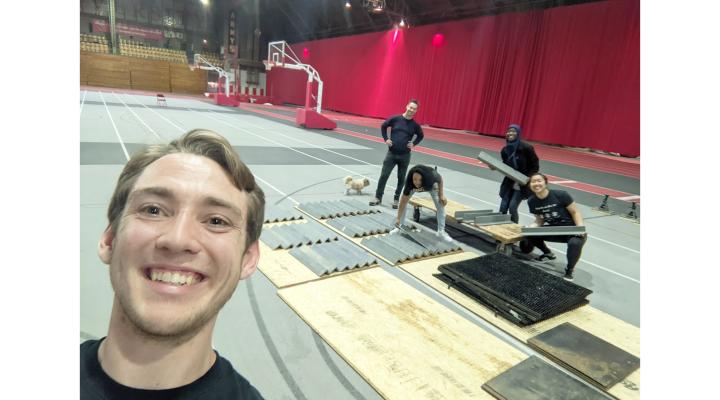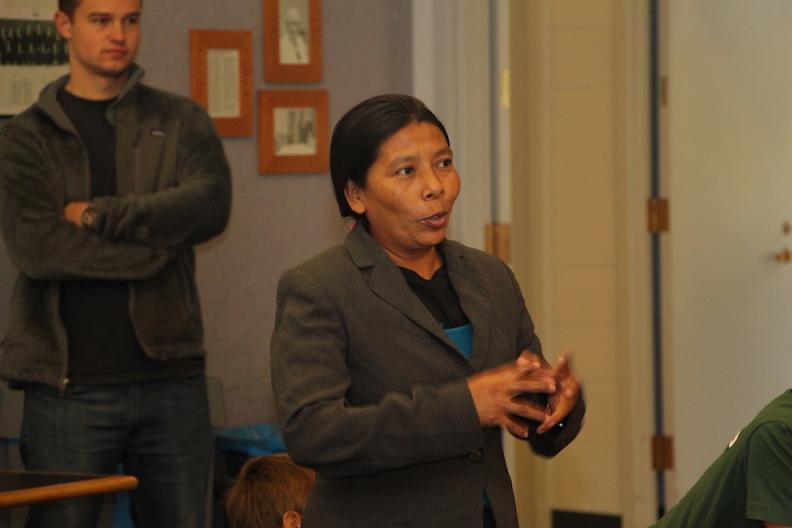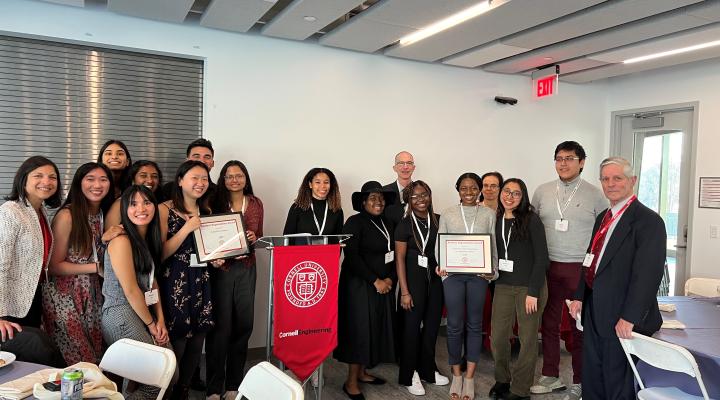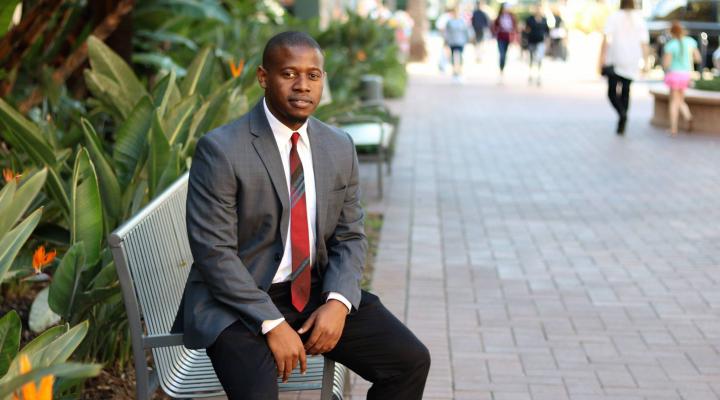On Wednesday, October 22 Susan Kinne and Reina Lopez anchored a lunchtime discussion about sustainability and alternative energy in rural households in Nicaragua. Kinne, who founded Grupo Fenix at the National Engineering University in Managaua, and Lopez, who is the leader of the women’s collective Las Mujeres Solares de Totogalpa, were on campus as guests of the Cornell Chapter of Engineers for a Sustainable World and The Bovay Program for Engineering Ethics.
Kinne and Lopez were invited to Ithaca by Ithaca College History Professor Michael Smith. Smith and his family spent the spring semester of 2013 in Nicaragua, working with Las Mujeres Solares and Grupo Fenix on their sustainable development projects in Sabana Grande. The women came to Cornell to speak about their work in developing alternative energy solutions to rural household energy needs.
The Cornell chapter of Engineers for a Sustainable World (ESW) has been involved with Grupo Fenix and Las Mujeres Solares for eight years. Tim Bond, who is the Manager of Tech Services for the Bovay Complex of Labs at Cornell Engineering, accompanied five students from Cornell’s Solar Cooker Project Team to Sabana Grande in 2006. Since then, the Solar Cooker Team and the women of Las Mujeres have had a technical exchange every year. Together, they have built cookers whose designs have evolved to be easier to build, more durable, and easier to repair. In the years since, their work together has expanded to include water pasteurizers and distillers, solar panels, and bicycle powered generators for use as backups for small solar panel systems.
Wednesday’s lunch discussion started with a 20-minute video showing the work done in Nicaragua by Susan Kinne and the women of Las Mujeres Solares. Approximately 40 attendees from many of the schools and departments at Cornell Engineering ate lunch as the video played. Funding for the lunch was provided by Cornell’s Diversity Programs in Engineering and the Department of Civil and Environmental Engineering.
Once the video was over, there was an open give and take discussion. Participants were given the chance to stand up, introduce themselves, and say why they came to the lunch. Then, both Kinne and Lopez fielded questions, with several attendees acting as translators for Lopez, who is from Sabana Grande and does not speak English.
One student in attendance asked Lopez what she hopes to see for Las Mujeres ten years from now. Through a translator Lopez said, “I would like to see all the people in all the communities of Totogalpa using sustainable sources of energy. I would also like to see some gender equality—right now the membership of Las Mujeres is 19 women and 1 man.” In many of Kinne’s comments, she stressed the need for any technological solution to fit the place it is being used. “Far too often,” said Kinne, “outside groups come in to a place and impose a solution that just does not fit because it is too high tech or it does not take into account how people in that place really live their lives.”
Afterward, Tim Bond commented on the women’s visit to Ithaca. “They are in town for a week and many of the events were up at Ithaca College and with local groups. It was good to have them here on campus for a few events. Our hope is to encourage more cooperative participation between Cornell, Ithaca College, Tompkins County Community College, Ithaca community members and their organizations in Nicaragua.”





